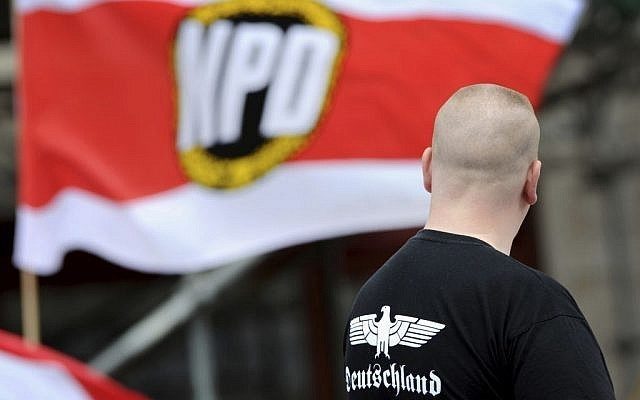Germany has broadened its legal definition of anti-Semitism to include anti-Zionism and other manifestations of the age-old hatred.
The German government has given its backing to a new definition of anti-Semitism intended to inform the work of schools, police and courts.
During its last cabinet meeting before Sunday’s national election, Chancellor Angela Merkel and her ministers expressed their support for a definition of anti-Semitism that includes attacks against religious institutions, the state of Israel and non-Jews who are targeted for anti-Semitic reasons.
The working definition of anti-Semitism was formulated last year at a conference of the Berlin-based International Holocaust Remembrance Alliance (IHRA).
Germany joins the UK, Austria and Romania in officially adopting this definition.
The International Holocaust Remembrance Alliance – an intergovernmental group comprised of 31 nations – adopted a definition based on the 2005 European Monitoring Centre (EUMC) working definition, which describes anti-Semitism as “a certain perception of Jews, which may be expressed as hatred toward Jews” that can also target the State of Israel.
Accusations of dual loyalty and the use of double standards against the Jewish state, as well as tenets of anti-Zionism like the denial of Jewish rights to self-determination, are also considered manifestations of anti-Semitism.
German officials say the decision has no immediate legal implications but is intended to send a signal “that the German government strongly supports the fight against anti-Semitism at all levels.”
The European Jewish Congress applauded Wednesday’s announcement, saying the move was a “vitally important decision” that it hopes other EU Member States will follow soon.
“Astonishingly, anti-Semitism used to be defined by the perpetrator and not the victim. In the future, no one in Germany will be able to claim their statements and actions against Jews as individuals, the Jewish people collectively or the Jewish state fall outside of clear definitions of hatred,” said Moshe Kantor, President of the EJC.
The nationalist Alternative for Germany party, some of whose members have expressed anti-Semitic views, is expected to enter parliament Sunday.
By: AP and World Israel News Staff





